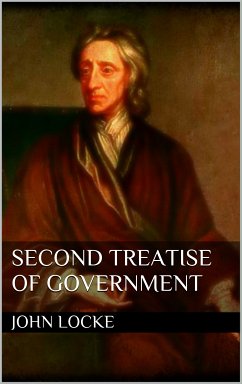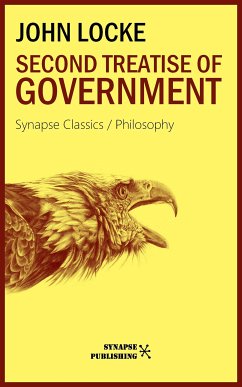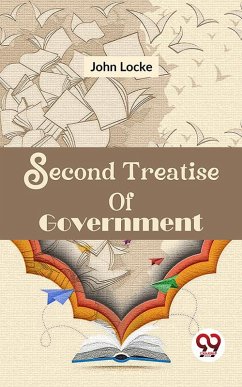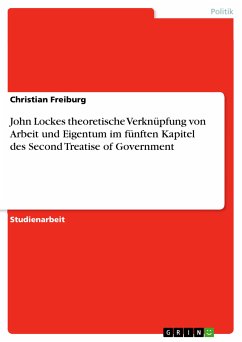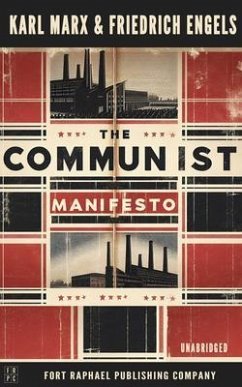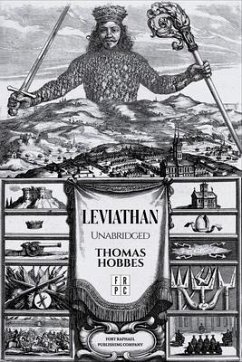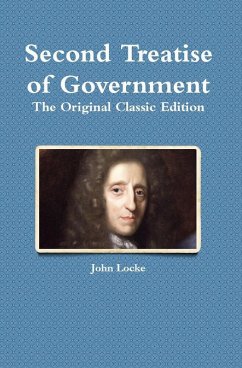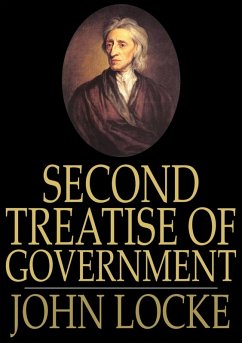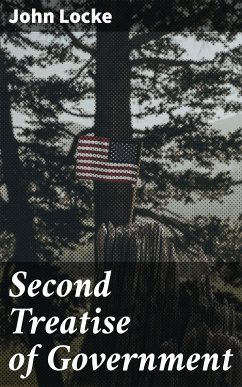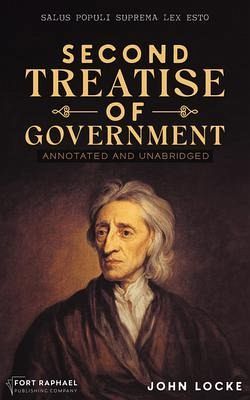
John Locke's Second Treatise of Government - Annotated and Unabridged (eBook, ePUB)

PAYBACK Punkte
2 °P sammeln!
In 1689, English philosopher John Locke - one of the most influential and brilliant writers of the Enlightenment period - published his book "Two Treatises of Government" anonymously.In the first volume, Locke attacks the patriarchy, in particular the so-called "absolute power" of the monarchy. (It appears to have been a direct refutation of Robert Filmer's book "Patriarcha" and Thomas Hobbes' "Leviathan," both of which argued for the unquestioned power of kings.)In the Second Treatise - presented here - Locke argues for a system of government based on the concepts of natural rights and contra...
In 1689, English philosopher John Locke - one of the most influential and brilliant writers of the Enlightenment period - published his book "Two Treatises of Government" anonymously.
In the first volume, Locke attacks the patriarchy, in particular the so-called "absolute power" of the monarchy. (It appears to have been a direct refutation of Robert Filmer's book "Patriarcha" and Thomas Hobbes' "Leviathan," both of which argued for the unquestioned power of kings.)
In the Second Treatise - presented here - Locke argues for a system of government based on the concepts of natural rights and contract theory, which places power in the hands of the governed and proposed a Parliamentary system that protects - rather than limits - the rights of the individual. While he did not go so far as to demand that England become a republic (thus removing the sovereign king entirely), he did propose a form of representational government where the people had a say in choosing their own rulers and could limit the power of the monarch.
A brilliant, controversial and, at times, contradictory piece (Locke appears to argue both for and against slavery, for example), "Second Treatise of Government" is now considered one of the most important and insightful pieces of political philosophy ever written.
It is presented here in its original and unabridged format, with annotations.
In the first volume, Locke attacks the patriarchy, in particular the so-called "absolute power" of the monarchy. (It appears to have been a direct refutation of Robert Filmer's book "Patriarcha" and Thomas Hobbes' "Leviathan," both of which argued for the unquestioned power of kings.)
In the Second Treatise - presented here - Locke argues for a system of government based on the concepts of natural rights and contract theory, which places power in the hands of the governed and proposed a Parliamentary system that protects - rather than limits - the rights of the individual. While he did not go so far as to demand that England become a republic (thus removing the sovereign king entirely), he did propose a form of representational government where the people had a say in choosing their own rulers and could limit the power of the monarch.
A brilliant, controversial and, at times, contradictory piece (Locke appears to argue both for and against slavery, for example), "Second Treatise of Government" is now considered one of the most important and insightful pieces of political philosophy ever written.
It is presented here in its original and unabridged format, with annotations.
Dieser Download kann aus rechtlichen Gründen nur mit Rechnungsadresse in A, D ausgeliefert werden.





